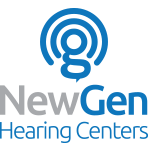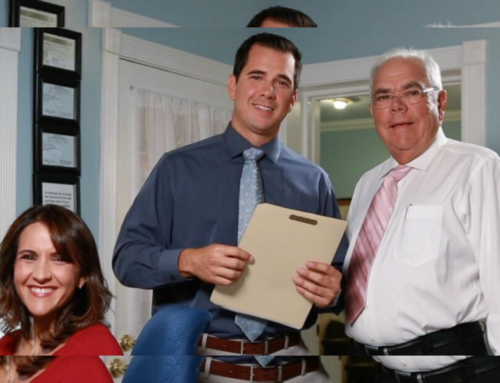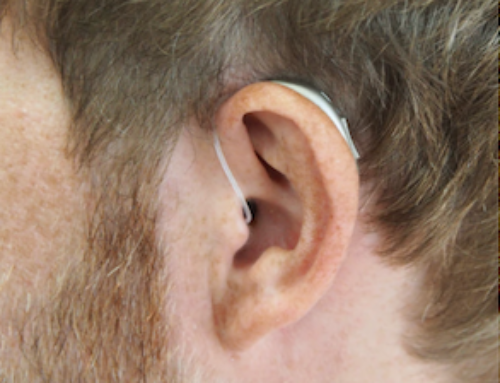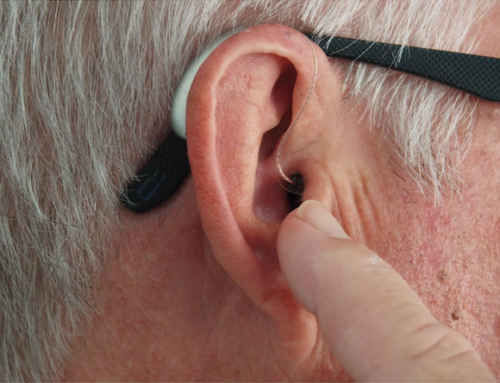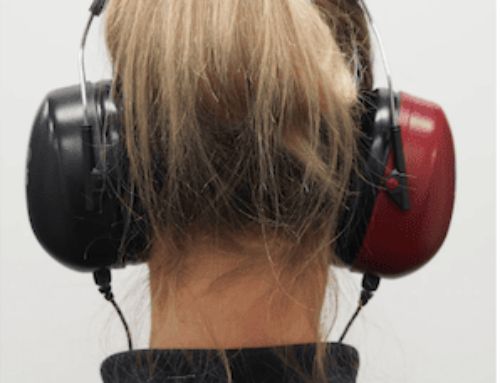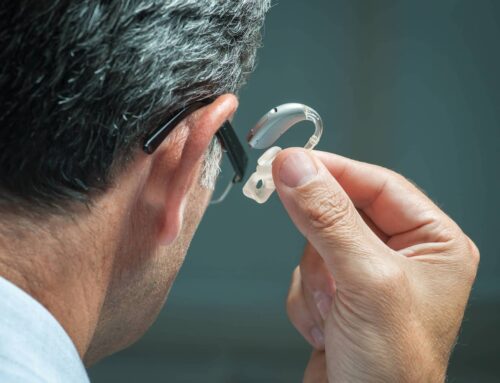The human auditory system includes an outer ear, a middle ear, an inner ear, and an acoustic nerve. Hearing loss may occur when any of these auditory elements fail to work correctly.
Hearing loss can affect anyone, regardless of age, with the effects ranging from moderate to severe. Typically hearing loss will fall into one of the following four categories:
- sensorineural hearing loss;
- conductive hearing loss;
- mixed hearing loss (which is a combination of conductive and sensorineural hearing loss) and;
- auditory neuropathy spectrum disorder.
Read on to learn more about these four types of hearing loss, their causes, and what can be done to address them.
Sensorineural Hearing Loss
Someone with sensorineural hearing loss has issues with their cochlea (inner ear) or the acoustic nerve.
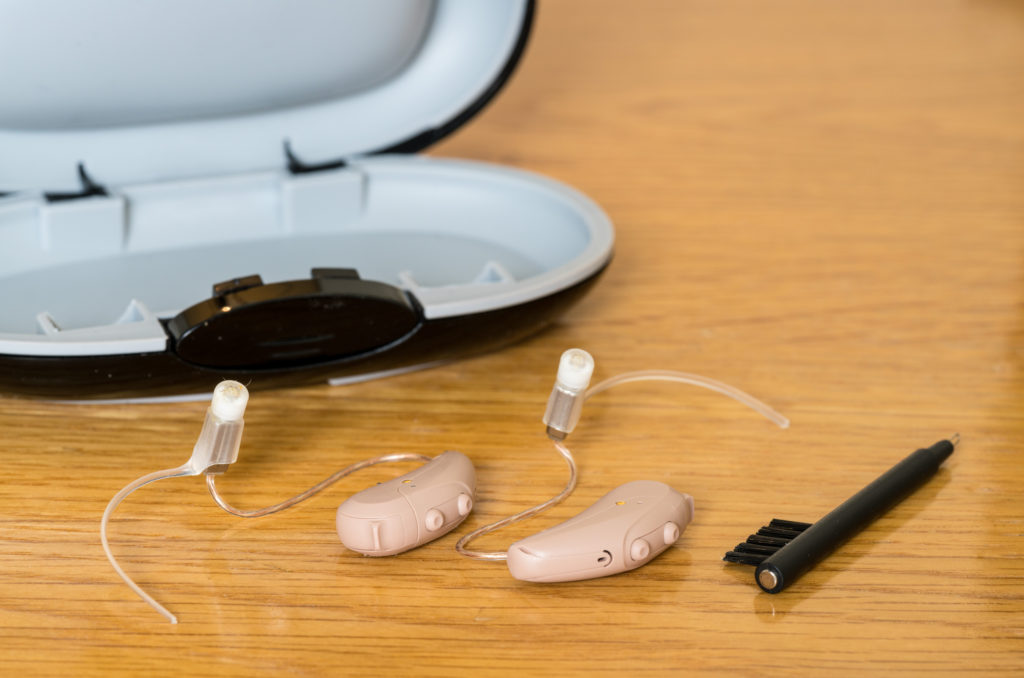
Loud noise exposure, injuries, diseases, and certain medications can all cause damage to the structure of your inner ear, causing sensorineural hearing loss. The condition can also occur genetically or as part of the aging process.
The condition is permanent, with treatment consisting of using hearing aids or getting cochlear implants.
Sudden Onset of Sensorineural Hearing Loss
Sudden onset of sensorineural hearing loss can occur suddenly or in a short period, such as days or weeks. If you or someone you know has experienced sudden sensorineural hearing loss, you should immediately enlist the help of an otologist. An otologist specializes in ear diseases.
Delaying treatment of sudden sensorineural hearing loss can decrease the effectiveness of medications that the doctor may prescribe to address the issue.
Conductive Hearing Loss
Whenever something prevents sound from making its way through your outer or your middle ear into your inner ear, it is known as conductive hearing loss.
A build-up of fluids or earwax inside your ear canal and foreign objects lodged inside your ear can cause conductive hearing loss. It can also result from eardrum damage or bone damage in your ossicles (middle ear). In addition, specific congenital disabilities can prevent sounds from reaching the ear and stimulating your acoustic nerve.
You can sometimes reverse conductive hearing loss with surgical or medical interventions.
Depending on the root cause of the conductive hearing loss, a patient will have multiple treatment options. Treatment may include surgeries to repair any structural abnormalities, procedures to remove any blocks, or the use of hearing aids or cochlear implants. In certain instances, bone-anchored hearing aids may be appropriate.
Mixed Hearing Loss
There are instances where an induvial may suffer from both conductive and sensorineural hearing loss, creating a condition known as mixed hearing loss. When someone has this condition, it will affect both the inner and middle or outer ear, leading, in many cases, to a profound loss of hearing.
Treatment may vary for mixed hearing loss depending on severity. In many cases, surgical procedures, cochlear implants, and hearing aids may be required.
![]()
Sometimes sensorineural hearing loss is experienced initially, and the patient develops conductive hearing loss over time.
Auditory testing remains crucial in identifying the exact kind of hearing loss you’re experiencing. It will also determine what solution will most successfully treat the issue.
Hearing aids come in a wide array of sizes, technologies, and styles to suit a range of specific needs. Many hearing aid alternatives also exist
Auditory Neuropathy Spectrum Disorder
In the case of auditory neuropathy spectrum disorder, sound can enter the ear and make its way to your acoustic nerve. However, a problem exists in transmitting that sound to your brain.
There are a variety of root causes of an auditory neuropathy spectrum disorder, including inner ear hair cell damage, which prevents sound information from being correctly transmitted to your brain, genetic mutations, or auditory nerve damage.
Someone suffering from auditory neuropathy spectrum disorder may display normal auditory sensitivity in hearing tests but struggle to comprehend the spoken word. In some instances, hearing aids or cochlear implants combined with hearing-assistive technology systems will be able to mitigate the effects of auditory neuropathy spectrum disorder. However, in more serious cases of auditory neuropathy spectrum disorder, where an individual has significant difficulty comprehending speech, visual communication techniques, such as picture exchange communication systems or sign language, will be necessary.
Common Causes of Adult Hearing Loss
People over fifty might experience a gradual loss of hearing over time as a result of age-related auditory nerve or ear changes. Hearing loss related to age is known as presbycusis. It is common and usually results in a patient having difficulty tolerating loud noises or hearing others speaking.
Other common causes resulting in hearing loss among adults include the following:
- Exposure to loud noises
- Head injuries
- Infections
- Illnesses
- Circulatory issues like high blood pressure
- Certain prescription medications
- Heredity
Talk to An Audiologist
When you or someone you love experiences hearing loss, consult an audiologist immediately. An audiologist can diagnose which form of hearing loss you are experiencing and recommend a proper course of action. Many types of hearing loss are treatable, and the quicker a professional makes a diagnosis, the sooner you’ll find relief.
Participate in Baseline Hearing Test
Unfortunately, most adults haven’t had a baseline hearing test since grade school. Therefore, you should have at least one baseline hearing test as an adult. This way, if you experience hearing loss later, an audiologist will have something to compare future tests with to determine the severity of any hearing loss you experience and offer appropriate treatment.
Contact an Audiologist in Miami
If you are experiencing hearing loss and considering hearing aids, Dr. Joseph K. Durán and Yvette Durán Someillán at New Generation Hearing can help.
New Generation Hearing carries the best hearing aids in Miami, with all the latest and most innovative technologies available. We are a full-service audiologist in Miami, offering free consultations. Contact us today to find out if you are eligible for insurance coverage.
In one appointment, New Generation Hearing will perform an audiological evaluation, discuss your hearing aid options and fit and train you on hearing aid use and care.
Contact New Generation Hearing today.
